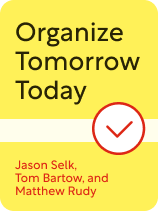

This article is an excerpt from the Shortform book guide to "Organize Tomorrow Today" by Jason Selk, Tom Bartow, and Matthew Rudy. Shortform has the world's best summaries and analyses of books you should be reading.
Like this article? Sign up for a free trial here.
Do you want to know how to develop good habits? More importantly, how do you make sure you don’t fall off track once a habit is successfully established?
When it comes to developing good habits, consistency is key: You must show up enough times for your brain to internalize a behavior and make it near-automatic. Once the habit is established, the work is not over: Maintaining healthy habits is an ongoing effort.
Here are a few tips for increasing your chances of successfully starting and maintaining habits.
Tip #1: Always Do the Habitual Behavior at the Same Time of Day
In their book Organize Tomorrow Today, Selk, Bartow, and Rudy provide a few tips on how to develop good habits and stick to them in the long term. First, they suggest picking a time for your habitual behavior and forcing yourself to do it at that time every day. By designating time for your habit beforehand, you’re removing the option to not engage in the behavior and avoiding the temptation to procrastinate. For example, if you want to start cooking dinner at home every evening, build cooking into your daily schedule and make sure you’re in the kitchen at that time no matter what.
(Shortform note: One potential downside of this strategy is that time-driven habits can feel monotonous, making the experience of doing the behavior unpleasant and making the habit less likely to stick. If scheduled habits don’t work for you, try context-based habits instead. When a habit is based on context, specific circumstances (like feelings and places) trigger the behavior, rather than a specific time. Context-based habits allow you to build your behaviors around your moods so that your habits fit more naturally into your daily life. For example, you might start a habit of taking a walk every time you feel stressed.)
Tip #2: Acknowledge When You’re Struggling
If you ever feel like skipping your positive habit, the authors argue that you should acknowledge that feeling. To work through a struggle, you first have to recognize that it’s happening. Additionally, every time you recognize a challenge and then overcome it, your success will trigger pride and positive momentum to tackle the next challenge that comes.
(Shortform note: Mindfulness techniques like meditation can help you acknowledge your feelings—including your struggle to maintain your habit—without judgment. Meditation teaches resilience and fosters equanimity, giving you the tools to navigate highs and lows with strength. When you’re struggling with your habit, try a brief, guided meditation that helps you face your feelings and find the root of your challenge. After you overcome challenges, try a gratitude meditation that helps you appreciate your success and cultivate positive, motivational emotions.)
Tip #3: Look Ahead
Selk, Bartow, and Rudy suggest imagining how your life will be different five years from now if you keep going with your new habit. Visualize this future in as much detail as possible. Then, imagine what your life will look like if you abandon your healthy habits. This will remind you why you want to make this change for yourself and what you’ll miss out on if you don’t.
(Shortform note: Other authors also advocate positive visualization: In Awaken the Giant Within, Tony Robbins argues that the first step toward positive change is to decide what you want in your future, giving you a destination to work toward. However, Robbins suggests that you only focus on what you do want, not what you don’t want: He claims that imagining what you don’t want will bring more of what you don’t want. Therefore, according to his advice, the authors’ second step of imagining a future in which you’ve broken your habit may not be very helpful.)

———End of Preview———
Like what you just read? Read the rest of the world's best book summary and analysis of Jason Selk, Tom Bartow, and Matthew Rudy's "Organize Tomorrow Today" at Shortform.
Here's what you'll find in our full Organize Tomorrow Today summary:
- How to prioritize and prepare for your tasks every day
- How you can improve your life through positive habits
- Why you need to break free from a perfectionist mindset






